Discover the ultimate guide to raising Jersey Giant chickens, encompassing breeding techniques, optimal farming practices, dietary essentials, egg-production strategies, and meticulous care tips. These magnificent birds require specialized attention to thrive. Learn about the best feed options, ideal coop designs, and effective health management practices to ensure the well-being and longevity of your Jersey Giants. From understanding their temperament to managing their growth rates, this comprehensive resource covers all aspects of raising these majestic birds.
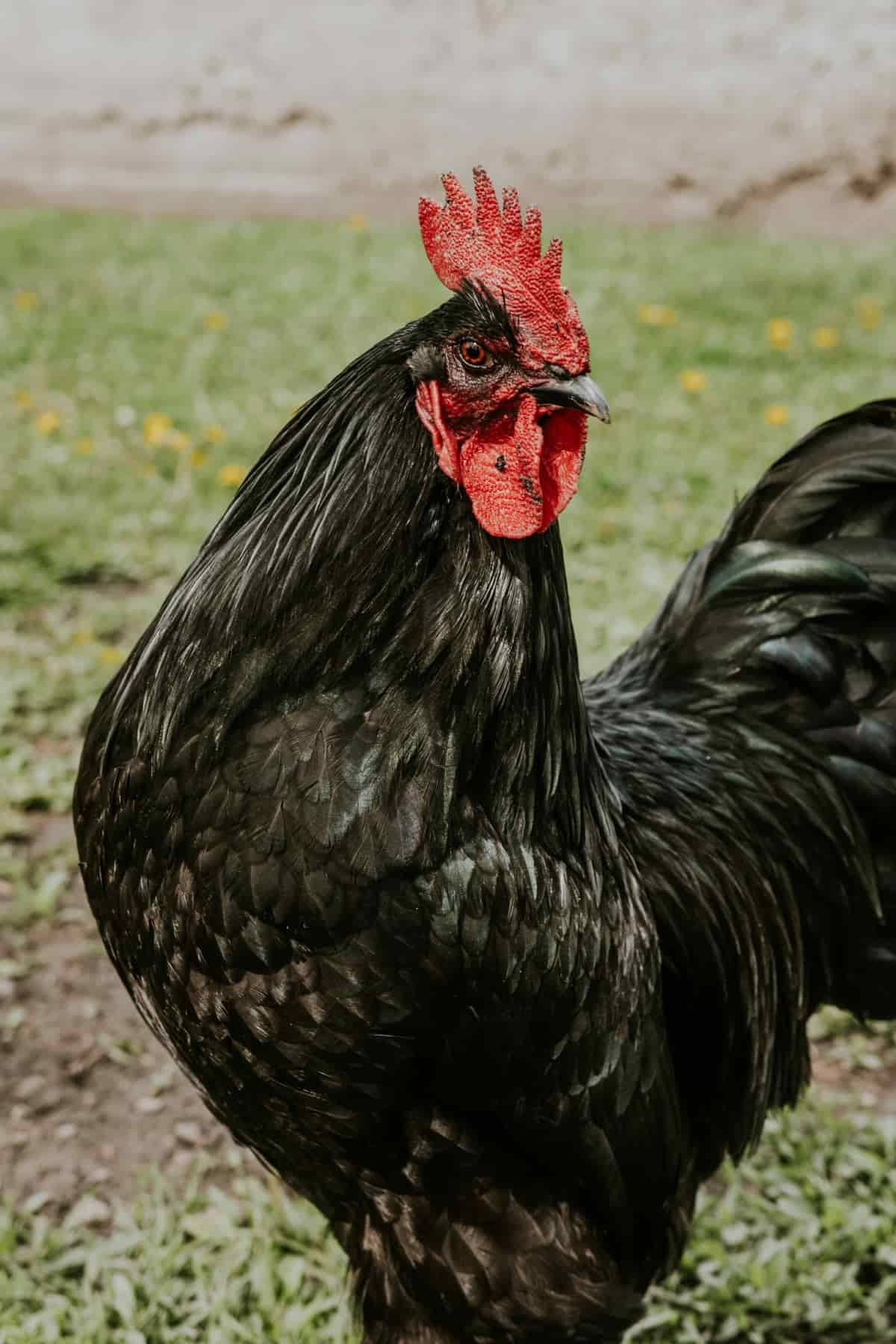
Raising Jersey Giant Chickens
Introduction to Jersey Giant Chickens
The Jersey Giant breed was developed in the United States in the late 19th century by John and Thomas Black from New Jersey. Their goal was to create a breed that could rival the popular Plymouth Rock and provide a dual-purpose bird for both meat and egg production. To achieve this, they crossed Black Javas, Black Langshans, and Dark Brahmas. The result was a breed that inherited the size and calm temperament of the Black Java, the glossy black plumage of the Black Langshan, and the feathered shanks and toes of the Dark Brahma.
Breed Characteristics and Appearance
Jersey Giants are the largest purebred chicken breed in the world. Roosters can reach an impressive weight of 13-15 pounds (5.9-6.8 kg), while hens typically weigh between 10-12 pounds (4.5-5.4 kg). They have a long, broad back and a deep, wide body. Their shanks and toes are feathered, and they have a single comb, bright red wattles, and earlobes. Jersey Giants come in two recognized colors: Black and White. The Black variety is more common and popular, while the White variety is rarer.
Price
The price of Jersey Giant chickens can vary depending on several factors, including the age, sex, and quality of the bird. On average, day-old chicks can range from $5 to $10 each, while pullets (young females) or cockerels (young males) can range from $15 to $30 each. Fully grown, breeding-quality birds can cost anywhere from $50 to $100 or more per bird. It’s important to note that prices may vary between different breeders and sellers.
Lifespan
Jersey Giants have a relatively long lifespan compared to other chicken breeds. With proper care and attention, they can live for 8 to 10 years or even longer. However, factors such as genetics, diet, housing conditions, and overall health can affect their lifespan.
Choosing Your Jersey Giants
When selecting Jersey Giants for your flock, consider your specific goals and preferences. Primarily interested in egg production, choose hens known for their high egg-laying capabilities. If you are looking for show-quality birds or want to breed them, focus on finding birds with desirable breed characteristics and conforming to breed standards. It’s important to source your birds from reputable breeders who prioritize health, temperament, and breed traits.
Where to Buy Jersey Giant Chickens
There are several options for purchasing Jersey Giant chickens. You can find them through local breeders, poultry shows, agricultural fairs, or online marketplaces. If possible, it is recommended to visit the breeder or seller in person to inspect the birds and their living conditions before making a purchase. Additionally, joining local poultry clubs or forums can provide valuable networking opportunities and access to reputable breeders.
Selecting Healthy Birds
When purchasing Jersey Giants, it’s crucial to select healthy birds to ensure the overall well-being of your flock. Look for birds with bright eyes, clean nostrils, and smooth feathers. Their combs and wattles should be a vibrant red color, indicating good blood circulation. Avoid birds that show signs of lethargy, ruffled feathers, or respiratory distress. It’s also essential to inquire about the bird’s vaccination history and obtain any necessary health records.
In case you missed it: Ultimate Guide to Raising Legbar Chickens: Breeding, Farming Practices, Diet, Egg-Production
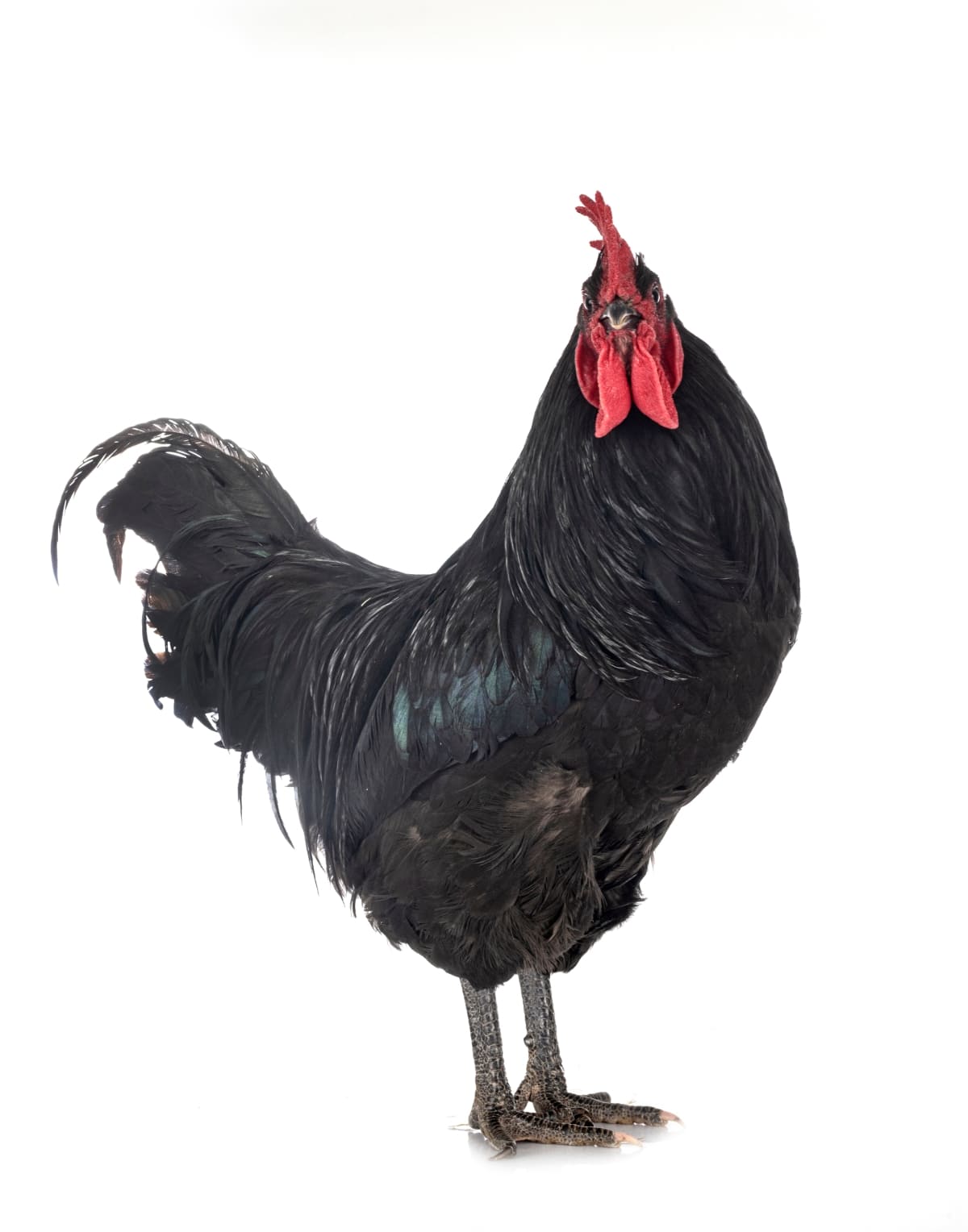
Basic Requirements for Raising Jersey Giants
Space Needs
Jersey Giants are large birds and require ample space to roam and exercise. As a general guideline, provide at least 4-5 square feet (0.37-0.46 square meters) of coop space per bird and a minimum of 10 square feet (0.93 square meters) of outdoor run space per bird. However, more space is always better, as it allows for healthier and happier chickens.
Shelter and Coop Design
A well-designed and secure shelter is vital for protecting your Jersey Giants from predators and the elements. The coop should be spacious enough to allow for comfortable roosting and nesting areas. It should also have proper ventilation to prevent the buildup of moisture and ammonia. Provide nesting boxes filled with clean bedding material for the hens to lay their eggs. Additionally, ensure that the coop has easy access for cleaning and regular maintenance.
Feeding Jersey Giants
Proper nutrition is the health and productivity of your Jersey Giants. A balanced diet should consist of high-quality commercial poultry feed supplemented with kitchen scraps, grains, fruits, and vegetables. It’s important to provide a feed specifically formulated for laying hens to meet their nutritional needs.
Nutritional Requirements
Jersey Giants have specific nutritional requirements that vary depending on their age and purpose. During the first few weeks of life, they require a starter feed high in protein (around 20-24%) to support proper growth and development. As they mature, switch to a grower feed containing 16-18% protein. Once hens start laying eggs, transition to a layer feed with 16-18% protein and increased calcium content (around 3.5-4.5%) to support eggshell formation.
Recommended Feed Types and Supplements
Commercially available chicken feeds are formulated to provide the necessary nutrients for Jersey Giants. Look for feeds that are free from artificial additives and harmful substances. Additionally, offering supplements such as oyster shells or crushed eggshells can help ensure adequate calcium intake for strong eggshells. Consult with a poultry nutritionist or veterinarian for specific supplement recommendations based on your flock’s needs.
Watering Your Flock
Clean and fresh water is essential for the overall health and well-being of your Jersey Giants. They require access to water at all times, and it should be provided in clean containers that are large enough to accommodate the entire flock. Regularly check and clean the water containers to prevent the buildup of algae, debris, or harmful bacteria.
Importance of Clean Water
Ensuring clean water is crucial to prevent diseases and maintain optimal hydration. Dirty or contaminated water can lead to bacterial infections, dehydration, and decreased egg production. Regularly inspect the water containers and clean them thoroughly to remove any dirt, algae, or droppings. Consider using nipple or cup waterers, which minimize the risk of contamination.
Watering Systems for Chickens
There are different types of watering systems available for chickens, including open dishes, bell drinkers, nipple waterers, and cup waterers. Each system has its advantages and disadvantages. Open dishes are simple and inexpensive but can get easily contaminated. Bell drinkers are commonly used and provide a steady supply of fresh water, but they can also get dirty. Nipple and cup waterers are more hygienic and reduce the risk of contamination but require initial setup and training for the chickens to use them.
In case you missed it: How to Raise Welsummer Chickens: A Comprehensive Guide for Beginners
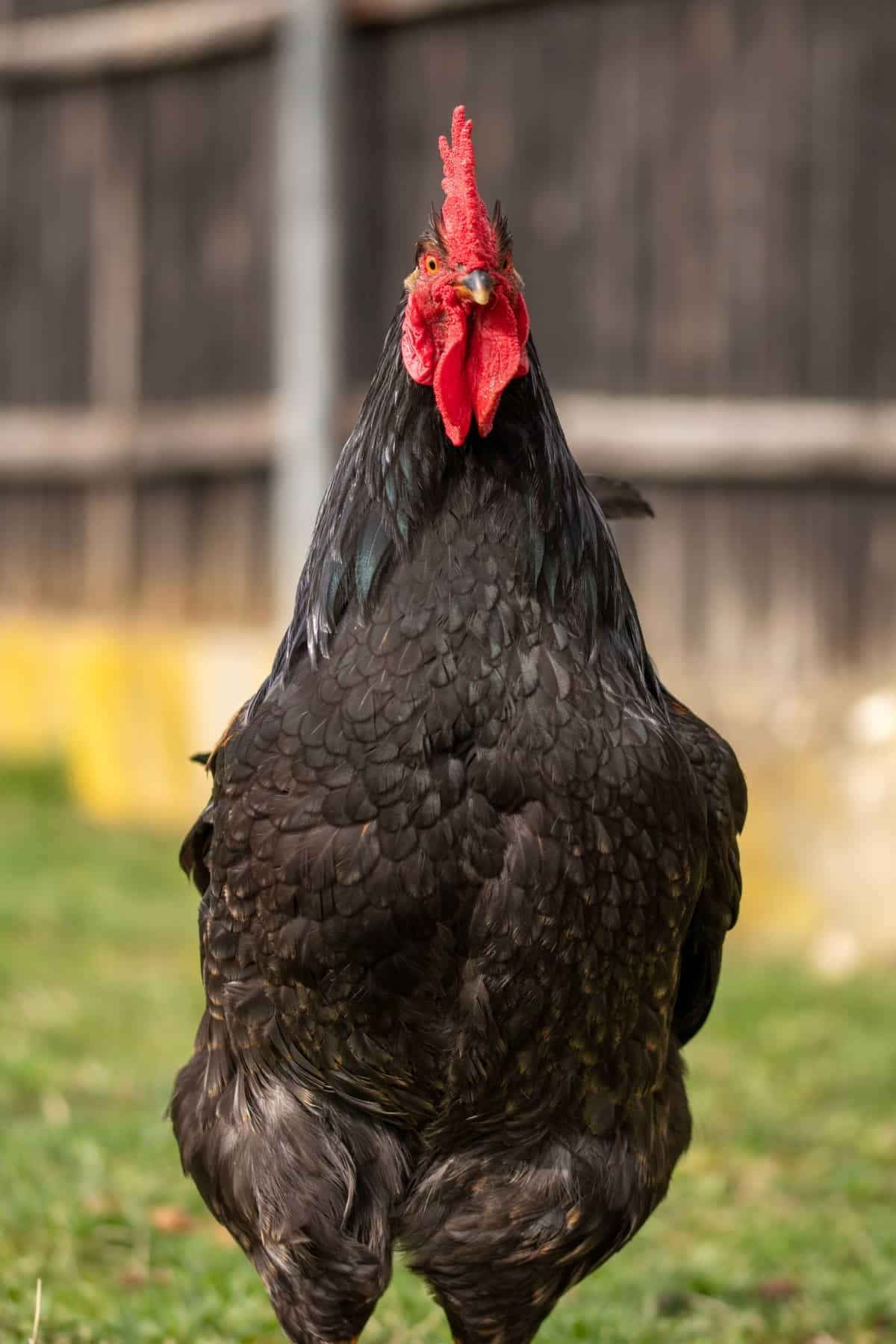
Health and Wellness
Common Health Issues in Jersey Giants
Jersey Giants are generally hardy birds, but they can still be prone to health issues. Some common health problems include respiratory infections, external and internal parasites, bumblefoot, and reproductive disorders. Regular observation and prompt action can help prevent and manage these issues. Consulting with a poultry veterinarian is recommended for proper diagnosis and treatment.
Preventative Care and Vaccinations
Preventative care keeping your Jersey Giants healthy. Following a vaccination schedule recommended by a poultry veterinarian can help protect them from common diseases such as Marek’s disease, Newcastle disease, and infectious bronchitis. Vaccinations are typically administered during the first few weeks of life and may require booster shots as the birds grow.
Parasite Prevention and Treatment
External and internal parasites can be a nuisance and potentially harm the health of your Jersey Giants. Regularly inspect your birds for signs of parasites, such as mites, lice, ticks, or worms. Use appropriate treatments, such as dusting powders or sprays, to control external parasites.
Identifying and Treating External Parasites
External parasites, like mites and lice, cause discomfort and irritation to your Jersey Giants. Inspect birds regularly for signs of infestation, including feather loss, scabs, or tiny crawling insects. Treat affected birds with approved poultry insecticides, following the manufacturer’s instructions carefully. Additionally, consider implementing preventive measures, such as dusting the coop and nesting boxes with diatomaceous earth.
Controlling Internal Parasites
Internal parasites, such as worms, can negatively impact the health and productivity of your Jersey Giants. Regularly deworm your flock using appropriate dewormers recommended by a poultry veterinarian. Additionally, practice good flock management, such as regular coop cleaning and rotation of grazing areas, to minimize the risk of parasite infestation.
In case you missed it: Ultimate Guide to Raising Araucana Chickens: Breed Profile, Farming Economics, Diet, and Care
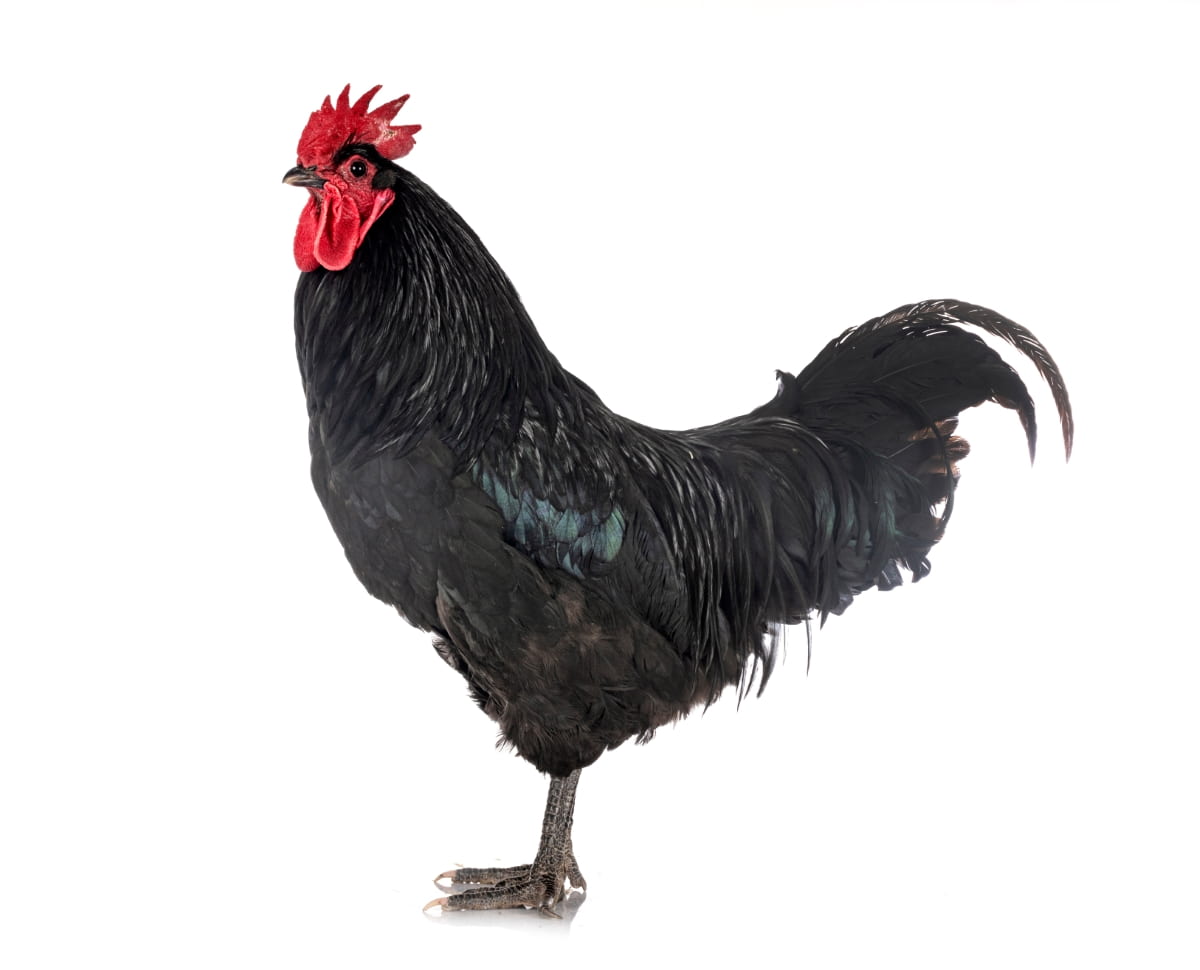
Breeding Jersey Giants
Selecting Breeding Stock
When selecting breeding stock, it’s important to choose birds that conform to the breed standards and exhibit desirable traits. Look for birds with good size, strong body conformation, and correct feather coloration. Pay attention to their temperament, health history, and egg-laying capabilities. It’s also beneficial to choose birds from different bloodlines to maintain genetic diversity within your flock.
Incubation and Hatching
To hatch Jersey Giant chicks, you can either use an incubator or allow a broody hen to incubate the eggs naturally. If using an incubator, set the temperature and humidity according to the manufacturer’s instructions. Collect eggs daily and store them in a cool place until you are ready to incubate. Turn the eggs regularly during the incubation period and monitor the temperature and humidity levels consistently. After 21 days, the chicks should start hatching. Provide a clean and warm brooder area for the newly hatched chicks.
Raising Jersey Giant Chicks
Temperature and Brooder Setup: For the first week, keep the temperature in the brooder space at around 95°F (35°C) by using a heat source, such as a heating pad or light. Reduce the temperature to 5°F (2.8°C) throughout each week until the bird has complete plumage and is able to control body temperature.
Feeding and Care for Young Chicks
- Feed the chicks a high-quality starter feed specifically formulated for young poultry.
- Provide clean water at all times and ensure the water containers are shallow enough for the chicks to access easily.
- Monitor behavior and health closely, and provide a clean and comfortable brooder environment.
- Introduce them to small amounts of fresh greens and treat them gradually as they grow.
In case you missed it: Silkie Chicken Farming: Raising Practices, Varieties, Egg Production, Diet, and Care
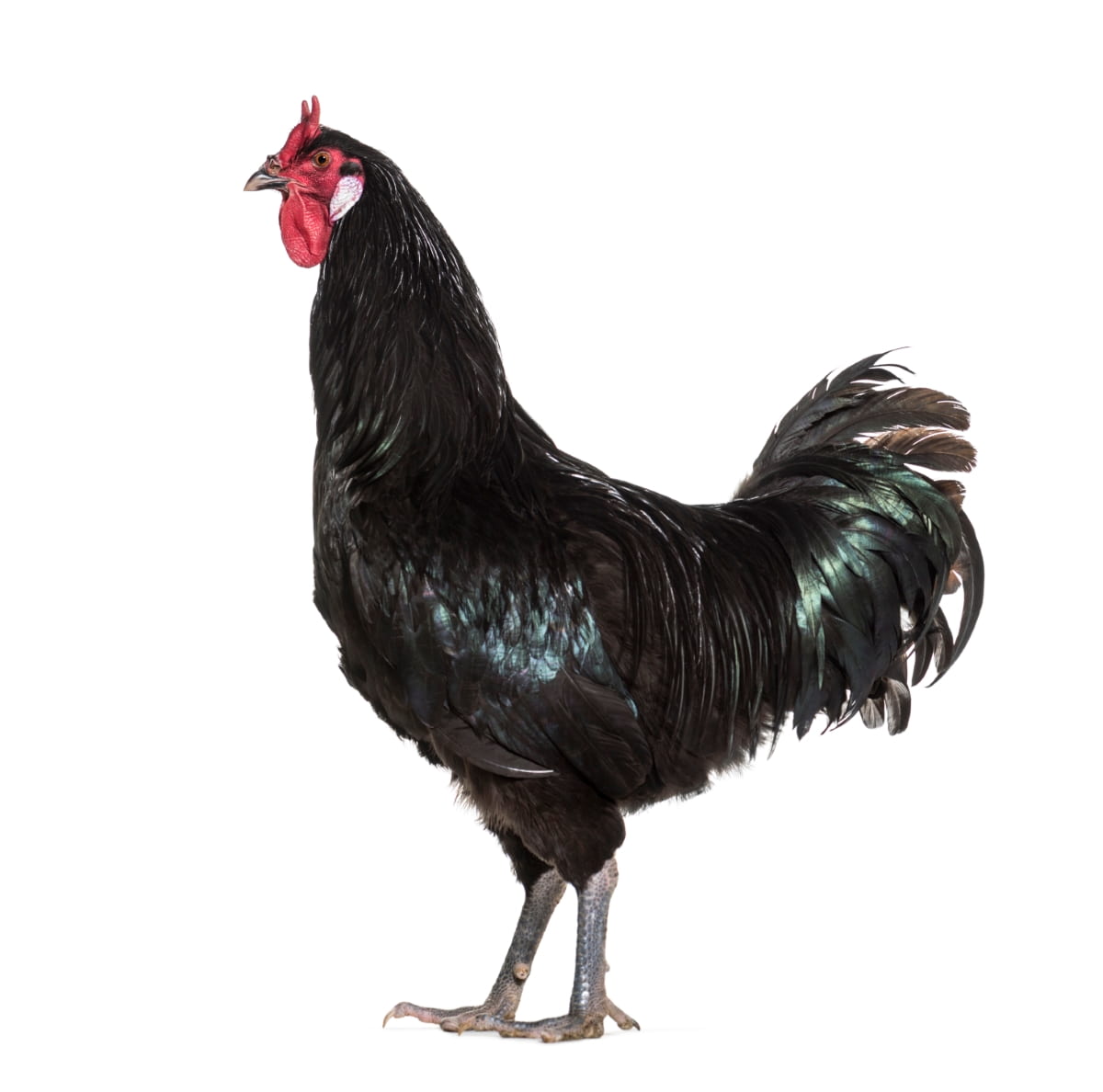
Egg Production
Understanding Egg Laying in Jersey Giants
Jersey Giants are known for their excellent egg-laying capabilities. Hens usually start laying eggs around 5-7 months of age, but this can vary individually. They are considered good layers, producing large brown eggs. The number of eggs laid per week can range from 3-5, depending on factors such as genetics, diet, and environmental conditions.
Maximizing Egg Production
- Provide them with a balanced diet, adequate lighting, and optimal environmental conditions.
- Ensure they have access to a high-quality layer feed containing the necessary nutrients for egg production.
- Supplement their diet with calcium sources, such as oyster shells or crushed eggshells, to support strong eggshells.
- Provide a consistent light source, as hens require 14-16 hours of light per day to maintain consistent egg production.
- Manage stress levels and provide a clean and comfortable nesting area for the hens to lay their eggs.
Behavior and Social Structure
Flock Dynamics and Pecking Order
Jersey Giants, like other chicken breeds, have a social hierarchy known as the pecking order. The pecking order establishes the dominance and ranking within the flock. It is characterized by pecking, chasing, and submissive behaviors. It’s important to introduce new birds gradually to an existing flock to minimize aggression and establish a new pecking order. Providing enough space, resources, and enrichment can also help reduce conflicts within the flock.
Handling Aggressive Behavior
Aggressive behavior within a flock can occur occasionally. It’s important to observe and monitor the behavior of your Jersey Giants. If aggressive behavior becomes an issue, consider providing more space, additional food and water stations to reduce competition, and implementing distractions or enrichment activities to redirect their attention. In severe cases, it may be necessary to separate aggressive birds from the rest of the flock.
Seasonal Care
Winterizing Your Coop
- Insulation: To retain heat and prevent drafts, the coop should be insulated. Materials such as straw, hay, or insulation boards should be used to cover the walls, ceiling, and windows.
- Ventilation: Proper ventilation to prevent moisture buildup and respiratory issues. Install vents or windows covered with mesh to allow fresh air circulation without creating drafts.
- Lighting: Supplement natural lighting with artificial light to provide the required hours of light for egg production during shorter winter days.
- Bedding: Use deep litter bedding, such as straw or wood shavings, to provide insulation and warmth.
- Water: To prevent water from freezing, use heated waterers or replace it frequently with warm water. Consider using nipple or cup waterers to minimize spillage and freezing.
Managing Heat Stress in Summer
- Shade: Provide ample shade in the outdoor run to protect the chickens from direct sunlight.
- Ventilation: Open windows or install fans to ensure proper airflow within the coop. This helps cool the birds and prevent heat buildup.
- Water: Provide cool and fresh water at all times. Consider adding ice cubes to their water containers or using misters to provide additional cooling.
- Dust Baths: Offer dust bath areas filled with dry soil or sand to allow the chickens to cool themselves and control parasites naturally.
Enrichment and Free Ranging
Benefits of Free Ranging
Allowing Jersey Giants to free range in a safe and secure area can provide numerous benefits. Free-ranging allows the chickens to forage for insects, worms, and greens, which can supplement their diet and provide mental stimulation. It also allows them to exercise and exhibit natural behaviors, resulting in healthier and happier birds.
Providing Enrichment in the Coop and Run
Enrichment activities can help keep your Jersey Giants stimulated and engaged, even when they are confined to the coop or run. Consider providing items such as perches, dust bath areas, hanging treats or vegetables, and toys to peck and explore. Rotate and vary the enrichment items regularly to prevent boredom.
In case you missed it: Ultimate Guide to Raising Brahma Chickens: Care, Feeding, Egg Production, and Breeding
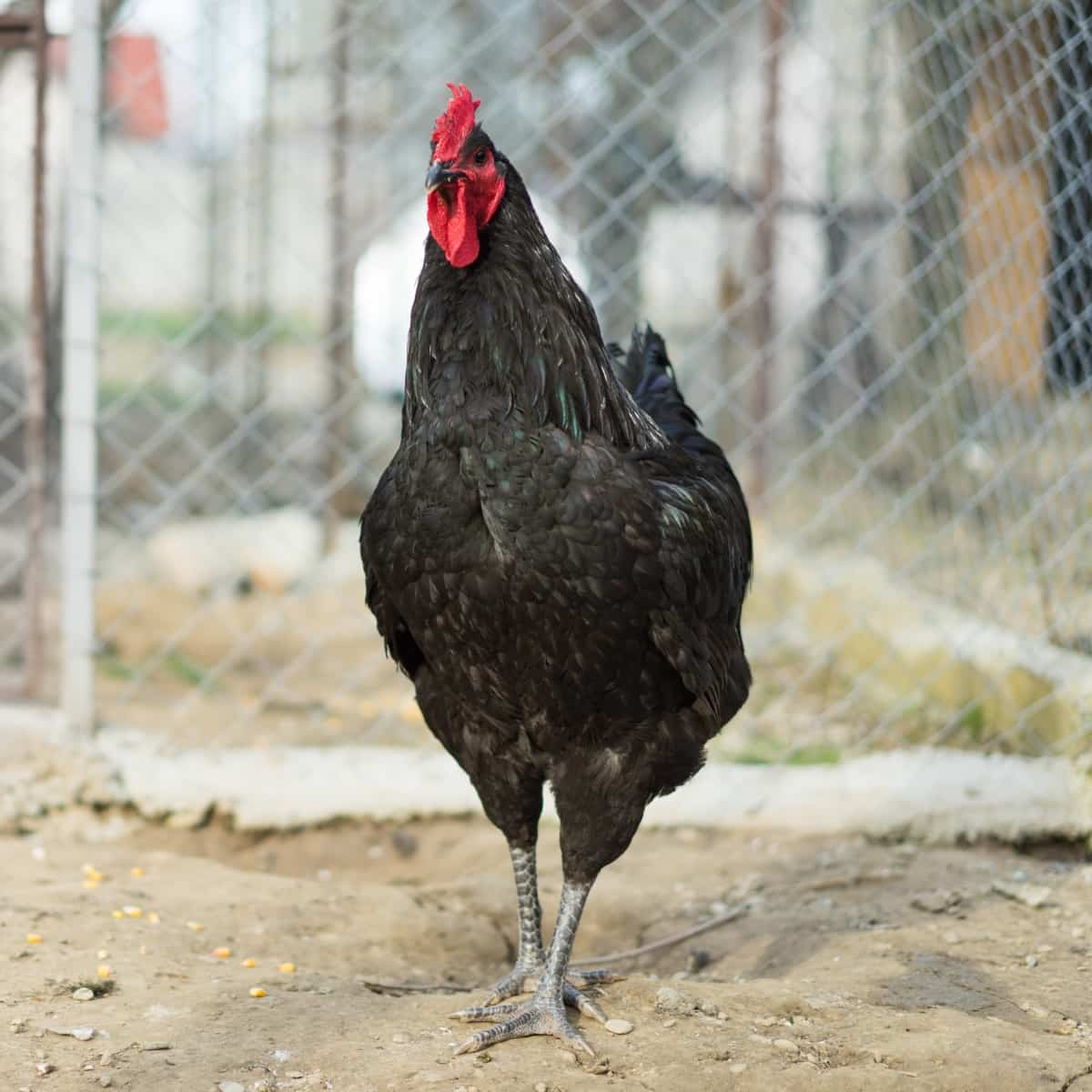
Legal Considerations and Community Relations
Understanding Local Regulations
Before keeping Jersey Giants or any other chickens, it’s important to familiarize yourself with local regulations and zoning ordinances regarding backyard poultry. Some areas have restrictions on chickens allowed, coop size and placement, and proximity to neighboring properties. Ensure compliance with all applicable rules to maintain a positive relationship with your community.
Being a Good Chicken Keeper Neighbor
- Odor and Waste Management: Properly manage chicken waste to prevent odors and attract pests. Regularly clean the coop and run, and consider composting chicken manure.
- Noise Control: Roosters can be noisy, so check local regulations regarding rooster keeping. If allowed, provide appropriate housing to minimize noise disruptions to neighbors.
- Fencing and Security: Ensure your coop and run are secure to prevent escapes and keep chickens from wandering into neighboring properties.
- Communication: Keep an open line of communication with your neighbors and address any concerns or issues promptly. Educate them on the benefits of keeping chickens and offer eggs or other small gestures of goodwill.
Conclusion
Jersey Giant chickens are a large, gentle breed known for their beauty and egg-laying abilities. Understanding their history, breed characteristics, and care requirements is crucial for raising them. This guide covers essential aspects like selecting healthy birds and providing appropriate housing, nutrition, and enrichment. Prioritizing health, welfare, and legal considerations while fostering a positive community relationship is essential. With proper care, Jersey Giants can thrive and provide years of joy and productivity.
Note: The images presented in this post are intended solely for representation purposes. The images are meant to serve as visual aids and should not be relied upon as accurate representations of their real-life counterparts.
- Types of Pesticides Used in Agriculture: A Beginner’s Guide
- Economical Aquaculture: A Guide to Low-Budget Fish Farming
- 15 Common Planting Errors That Can Doom Your Fruit Trees
- How to Make Houseplants Bushy: Effective Tips and Ideas
- Innovative Strategies for Boosting Coconut Pollination and Yield
- Pollination Strategies for Maximum Pumpkin Yield
- The Complete Guide to Chicken Fattening: Strategies for Maximum Growth
- Natural Solutions for Tulip Problems: 100% Effective Remedies for Leaf and Bulb-Related Issues
- Revolutionizing Citrus Preservation: Towards a Healthier, Greener Future
- Natural Solutions for Peony Leaf and Flower Problems: 100% Effective Remedies
- Maximizing Profits with Avocado Contract Farming in India: A Comprehensive Guide
- Natural Solutions for Hydrangea Problems: 100% Effective Remedies for Leaf and Flowers
- The Ultimate Guide to Choosing the Perfect Foliage Friend: Bringing Life Indoors
- From Sunlight to Sustainability: 15 Ways to Use Solar Technology in Agriculture
- The Ultimate Guide to Dong Tao Chicken: Exploring from History to Raising
- The Eco-Friendly Makeover: How to Convert Your Unused Swimming Pool into a Fish Pond
- Mastering the Art of Delaware Chicken Farming: Essentials for Healthy Backyard Flocks
- 20 Best Homemade Fertilizers for Money Plant: DIY Recipes and Application Methods
- How to Craft a Comprehensive Free-Range Chicken Farming Business Plan
- Brighten Your Flock: Raising Easter Egger Chickens for Beauty and Bounty
- How to Optimize Your Poultry Egg Farm Business Plan with These Strategies
- Subsidy for Spirulina Cultivation: How Indian Government Schemes Encouraging Spirulina Farmers
- Ultimate Guide to Raising Dominique Chickens: Breeding, Feeding, Egg-Production, and Care
- Mastering the Art of Raising Jersey Giant Chickens: Care, Feeding, and More
- Ultimate Guide to Raising Legbar Chickens: Breeding, Farming Practices, Diet, Egg-Production
- How to Raise Welsummer Chickens: A Comprehensive Guide for Beginners
- How to Protect Indoor Plants in Winter: A Comprehensive Guide
- Ultimate Guide to Grow Bag Gardening: Tips, Tricks, and Planting Ideas for Urban Gardeners
- Guide to Lotus Cultivation: How to Propagate, Plant, Grow, Care, Cost, and Profit
- Agriculture Drone Subsidy Scheme: Government Kisan Subsidy, License, and How to Apply Online
- Ultimate Guide to Raising Araucana Chickens: Breed Profile, Farming Economics, Diet, and Care
- Bringing Hydroponics to Classroom: Importance, Benefits of Learning for School Students
- Ultimate Guide to Raising Polish Chickens: Breed Profile, Farming Economics, Diet, and Care
- Ultimate Guide to Raising Australorp Chickens: Profile, Farming Economics, Egg Production, Diet, and Care
- Silkie Chicken Farming: Raising Practices, Varieties, Egg Production, Diet, and Care
- Sussex Chicken Farming: Raising Practices, Varieties, Egg Production, Diet and Care